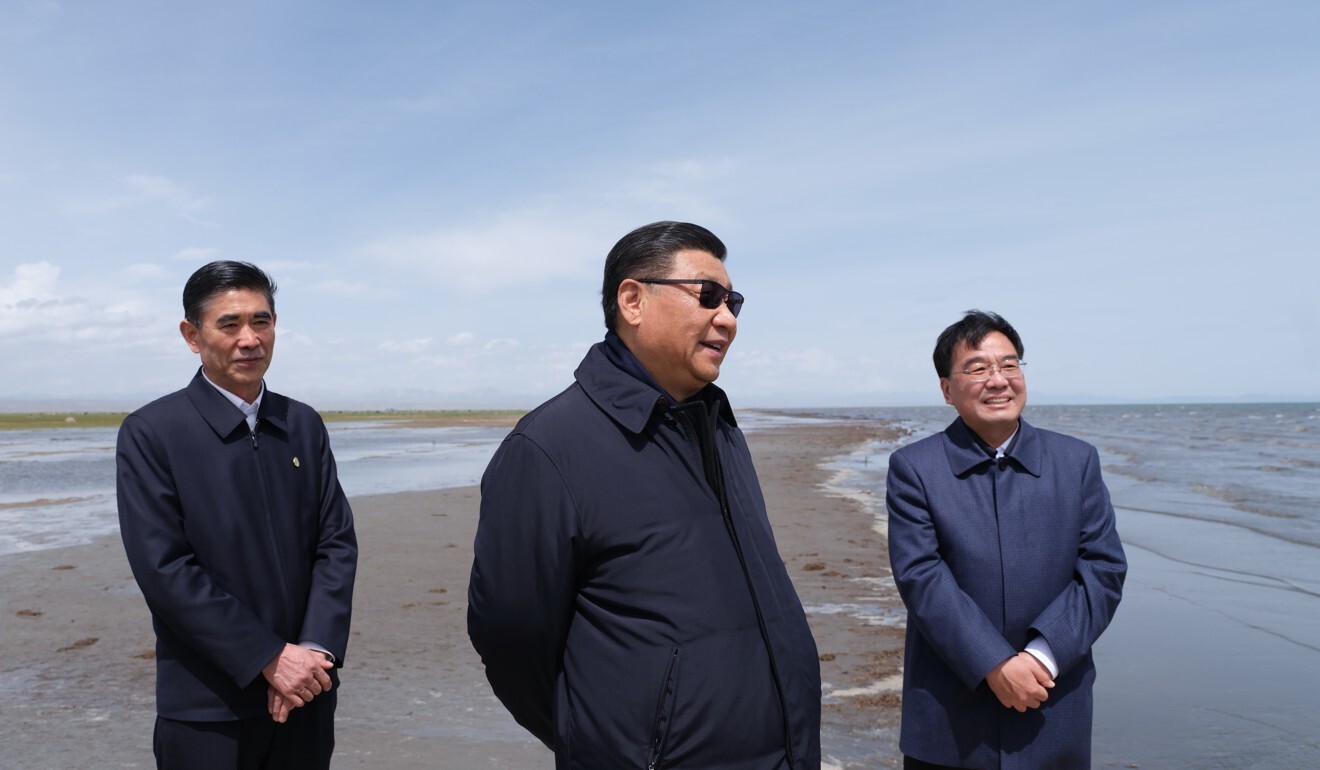
Chinese President Xi Jinping tells officials to look to Qinghai as model for governing Tibet and Xinjiang
- Xi described the province as a ‘model of national unity’ and told local officials to uphold the party’s policies on governing Tibetan areas
- A quarter of Qinghai’s population are ethnic Tibetans and the province is the birthplace of the exiled Dalai Lama
He said the province, where around a quarter of the population are ethnic Tibetans, was a “model of national unity”, according to state news agency Xinhua.
Xi also told local officials to adhere to Beijing’s ethnic policies and continue the sinicization of religion.
He described the province as “a strategic key place in maintaining stability in Xinjiang and Tibet”, adding: “It must comprehensively implement the party’s policy on how to govern Tibetan areas and shoulder responsibility.”
China’s Tibet Communist Party chief targets religion and separatism
“As we enter the new stage of development … the importance of Qinghai in terms of ecological security, homeland security, resources and energy security has become even more conspicuous,” Xi said.
During the trip, Xi visited Gangcha county, where most residents are ethnic Tibetans, and used the Tibetan greeting “Tashi Delek” to wish the locals luck.
Qinghai, a remote inland province, is also the birthplace of the Dalai Lama. The Tibetan spiritual leader, who will turn 86 next month, fled China in 1959.
Beijing has previously blamed him for bouts of ethnic unrest that erupted in Lhasa, the Tibetan capital, in the 1980s and again in 2008, something human rights groups blamed on the government’s repressive religious policies.

In recent years, Beijing has toned down its rhetoric about negotiating with the exiled Tibetan spiritual leader and his age and health have prompted warnings that his death may provide a further flashpoint for protests.
The Dalai Lama has previously suggested that people should end the traditional practice of looking for his reincarnation, but Beijing has said his successor will be chosen in accordance with Chinese laws.
Tibet’s government-in-exile has a new leader. Here’s what to expect
Xi, whose visit came amid the preparations for the Communist Party’s centenary on July 1, also sent a message to party members, reminding them of their oath to make sacrifices for the benefit of the country.
“We shall continue to work hard, and by the time new China celebrates its centenary, the Chinese nation will, without a doubt, stand firmer and stronger among the world’s nations,” Xi said.
He also delivered an environmental message, reminding local cadres of the importance of conservation and protecting the environment. He said Qinghai boasts some of China’s most valuable natural habitats and resources that must be protected.

